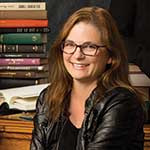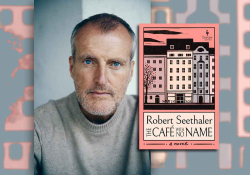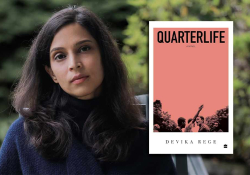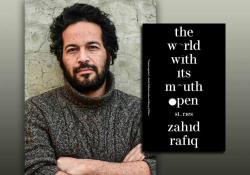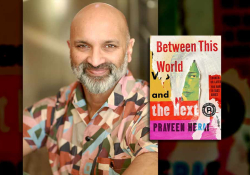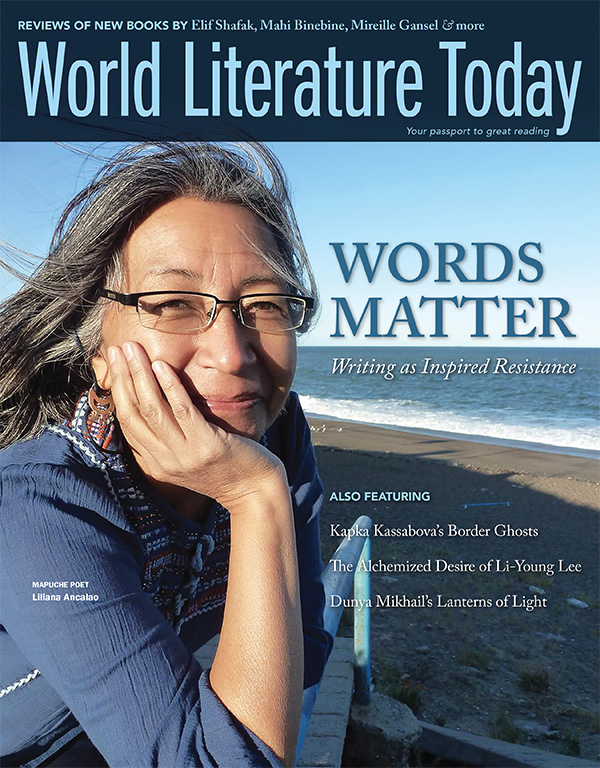“Treasuring the Tradition of Inspired Resistance”: A Conversation with Maureen Freely

Maureen Freely is currently the president of English PEN and a writer, translator, and the head of the Department of English at the University of Warwick. Freely is the English translator of five novels by Nobel Prize laureate Orhan Pamuk and has authored seven novels, including Sailing through Byzantium (2013). Freely writes regularly for the British press on feminism, contemporary writing, and Turkish culture and politics. Born in the US, raised in Turkey, and educated at Harvard, she lives in Bath.
Madonna in a Fur Coat, her English translation (with Alexander Dawe) of Sabahattin Ali’s Turkish classic, was published in October 2017. Here she discusses its fascinating journey into a symbol of resistance, various manifestations of resistance throughout the literary world, and how that very word itself—resist—risks emphasizing the negative.
Michelle Johnson: Could you tell us a little bit about Sabahattin Ali?
Maureen Freely: Sabahattin Ali was born in 1907 to a prominent Ottoman family that lost almost everything during the First World War and the imperial collapse that followed. He managed nonetheless to get himself an education, which he rounded off with two years in Berlin in the late 1920s. Returning to Turkey, he secured work in the provinces as a teacher of German, but not long afterward he was prosecuted and sent to prison for a poem allegedly critical of Atatürk. Upon his release, he wrote a poem about his love for his country. This paved the way to a new post in the state publication department in Ankara. He was well known in his day as a poet, dramatist, and short-story writer, and as the co-founder of Marko Pasha, the most daring satirical weekly of the age, but is best remembered now for his three novels.
What would we have been writing, if we had not been engaged in all this firefighting?
The last of these, Madonna in a Fur Coat, was published in the early 1940s in serial form. Even those writers whom he considered brothers in arms did not understand why he had taken it upon himself to write a love story at a time when their country was mercilessly crushing the opposition while coming dangerously close to siding with Nazi Germany. Soon enough, Ali was himself back in prison. After his release, he was unable to find work and also denied a passport. In desperation—because he had a wife and daughter to support—he set off across the mountains for his birthplace, Ardino, formerly Ottoman and by then part of Bulgaria. But he was murdered by his guide, who later admitted to being in the pay of the Turkish security forces. On the day he made his confession, the Turkish press published a ghastly display of his personal effects. It was the last his family ever saw of them. His remains were never returned to them either.
Johnson: I’ve seen this novel described as a simple romance and apolitical. How has this book become a symbol of resistance to so many in Turkey?
Freely: Well, for one thing, there is the story of the book. Madonna did not die with him. During the Cold War, it was widely read throughout the Eastern bloc and on the syllabus for high school students in Bulgaria. In Turkey, it was widely forgotten until the turn of the century, when an all-too-brief cultural opening led to the rediscovery of works suppressed during the worst years of the early republic. Madonna was embraced first and foremost by the younger generations, and with good reason.
Literature needs a refuge in which to grow. In the limelight it risks being stretched and bent to fit the political conflicts of the moment. And when that happens, freedom of expression is no longer possible, except as some sort of charade.
Which brings me to the larger questions around symbols of resistance and political writing. As much as I admire those who write truth to power, challenging all that power does, I sometimes regret the energy lost to this endeavor, because no matter how boldly you write truth to power, it is still power setting the agenda. I cannot help asking myself, What would we have been writing, if we had not been engaged in all this firefighting? The Nobel laureate Elfriede Jelinek has written about the importance of safeguarding the freedom not to write about politics, or at least not to have to write about it all the time. And I agree.
Sabahattin Ali was writing about sexual politics in this book. He was giving voice to dreams of sexual liberation. Of course, these terms had no purchase at the time. But they do now, most especially in countries like Turkey, in which they are under dire and daily threat.
Johnson: Watching the events unfold in Turkey the night of July 15, 2016, on television, I was struck by the absence of women in the streets. Throughout the long night of the attempted coup, the streets were full of men, but I only recall seeing one woman. Contrast that with the women marching worldwide six months later on January 21. Were there women’s resistance marches in Turkey? I don’t see any online, despite seeing reports of sister marches in other international cities. What does resistance by women look like in Turkey today?
Freely: In fact, there were many fervent female supporters of Erdoğan out in the streets that night, and one has become something of an icon. If you want to see those who support and indeed work tirelessly and at great risk to themselves for women’s rights and LGBT rights, you need only go back to the Gezi riots of 2013 and the Gay Pride and March 8 demonstrations that still happen annually, even now. Turkish feminism is alive and well, and of necessity as well as out of principle it is closely entwined with all other movements of social justice.
As for the women’s marches we saw across the world on January 21 but not in Turkey, we must remember what Turkish women were up against that day. I imagine that the spectre of Trump was overshadowed by the looming threat posed by their own president. We must never lose count of the academics, writers, publishers, journalists, and activists—so many of them feminists—who were in prison on January 21, 2016. Just as we must never forget how many others have lost their livelihoods, or who stand to lose them at a moment’s notice, should a neighbor or colleague denounce them as “terrorists,” the term that is now shorthand for anyone opposing or being seen to oppose that archenemy of feminism, President Erdoğan. We must also remember those who have had to go into exile. Turkey is not a free country right now. At the same time, it is a country where freedom of thought really counts for something. But for now, it must be exercised with caution.
Johnson: What are one or two of the bravest acts of literary resistance you’ve witnessed?
Freely: Again, it depends on what kind of resistance you are talking about. There is the theater of resistance, with the world’s media systems whirling madly around it. After Orhan Pamuk alluded to the “million Armenians and thirty thousand Kurds who had been killed in these lands” during a routine interview with a Swiss journalist, he found himself stranded in just such a drama, and as his translator at that time, I too was drawn in. What the literary public will remember from that episode will be Orhan’s measured, public statements. Speak to those of us who were caught inside the maelstrom with him, and we’ll recall the madness of it all. We’ll speak of learning that literature needs a refuge in which to grow. In the limelight it risks being stretched and bent to fit the political conflicts of the moment. And when that happens, freedom of expression is no longer possible, except as some sort of charade.
So what I treasure is not the theater of resistance but the traditions of inspired resistance observed by beleaguered writers—and readers, publishers—in countries like Turkey. I like to think of the loyal and obedient army officer who locked all the doors of his house now and again to spend a night drinking raki and reciting the poet Nâzım Hikmet, whose work was banned throughout the Cold War. I like to remember the publishing house that was serially prosecuted for translating Henry Miller into Turkish. When it was finally permitted to bring out a version with the offending passages omitted, it was clever enough to include an appendix in which those same passages could be read in full. And not to forget Selahattin Demirtaş, the leader of the Peoples’ Kurdish Democratic Party, who has been in prison for a year now. He recently published a collection of short stories, all written in prison. It is selling brilliantly.
Johnson: Where do literary translators, particularly, fit into resistance?
Freely: In Turkey, literary translators are prosecuted when the works they translate are found to be objectionable. Sometimes, as in the case of Aziz Nesin, the Turkish translator of Rushdie’s The Satanic Verses, they risk assassination. Those of us who translate out of Turkish into English are in a much more privileged position. But because anglophone audiences are rarely familiar with the country or the literature, we have to do a lot of explaining. Of course, that is a privilege in and of itself, but just to say that when we send in our draft translations, our work has only just begun, most especially when the thing we have translated is controversial.
There is also the privilege of bringing in voices and perspectives that might never have been seen or heard in English had we not fought to make it happen. After Orhan and I went our separate ways, I translated several works of feminist oral history touching on the legacy of the 1915 Armenian genocide. I do not expect them ever to find a wide readership, but I am heartened to know that they are sitting in libraries, quietly setting the record straight. I heard many secret histories from this dark chapter of Turkish history when I was growing up in Istanbul as a child. So you could say that my efforts to bring a few of these stories into English was an act of resistance on my part. It won’t ever hit the headlines, but I am glad I had the chance to do the right thing.
Johnson: What role has resistance already played in your life as author and translator?
Freely: We live in a narrative culture. It’s through stories that we shape meaning. The most powerful story wins. All too often, it is money that gives a story its power, pumping up the volume and extending its reach. But when I write, and when I translate, I have a chance to cut through those blaring, scaring stories and offer something that takes its power from being different, and beautiful, and true. That is the hope I live by. I suppose you could call it my faith.
Johnson: As president of English PEN since 2014, you are part of the resistance against whatever threatens freedom of expression, wherever those threats occur. What are the gravest threats today? Where are they?
Freely: They are everywhere! As are the opportunities. For in the age of the Internet, we have all become writers. But in the West, we tend to be complacent about the rules of engagement. We are not as free as we think we are. At English PEN we believe very strongly that writers should help writers, reaching across the globe. But we also try to begin where we are, working wherever possible with refugees, prisoners, and those suffering from dementia, not just because they deserve a chance to speak and be heard but because we have a great deal to learn from them.
Johnson: We’ve seen how a book, Ali’s Madonna in a Fur Coat, can become a symbol of resistance. Are you seeing any other literary symbols of resistance in other places, for instance Venezuela, currently one of the most heated sites of resistance?
Freely: I’m not sure I can speak knowledgeably about Venezuela. But speaking generally, it seems to me that the books which take on symbolic importance of this type are the ones that are oblique, evoking parallels and resonances instead of hitting the target head on.
What I treasure is not the theater of resistance but the traditions of inspired resistance observed by beleaguered writers—and readers, publishers—in countries like Turkey.
Johnson: What have you learned about effective resistance over the course of your time with English PEN?
Freely: Where we are able to work effectively, we do so through networks of trust built up over many decades. What I like about PEN is that it sees all writers as equal partners. We don’t rush into countries to do a piece of work and then leave. We stay in touch. We read each others’ works. We become friends.
Johnson: Continued resistance requires strength. Do you have any go-to reads you can recommend for renewing strength in troubled times?
Freely: Again, resistance is a word that risks emphasizing the negative. I prefer to look for books that keep me connected, that open up my mind in unexpected ways, reminding me what an interesting world we live in. Here’s one that’s doing the trick right now: Notes on a Foreign Country: An American Abroad in a Post-American World, by the wonderful Suzy Hansen, who has been living, and thinking, in Istanbul for the past decade. It was published by FSG this past autumn and is, in my view, required reading for anyone wondering what the US looks like these days, from the outside.
Johnson: What would you say is the most important thing to resist in this moment?
Freely: Burnout! We’re in for the long haul.
September 2017
